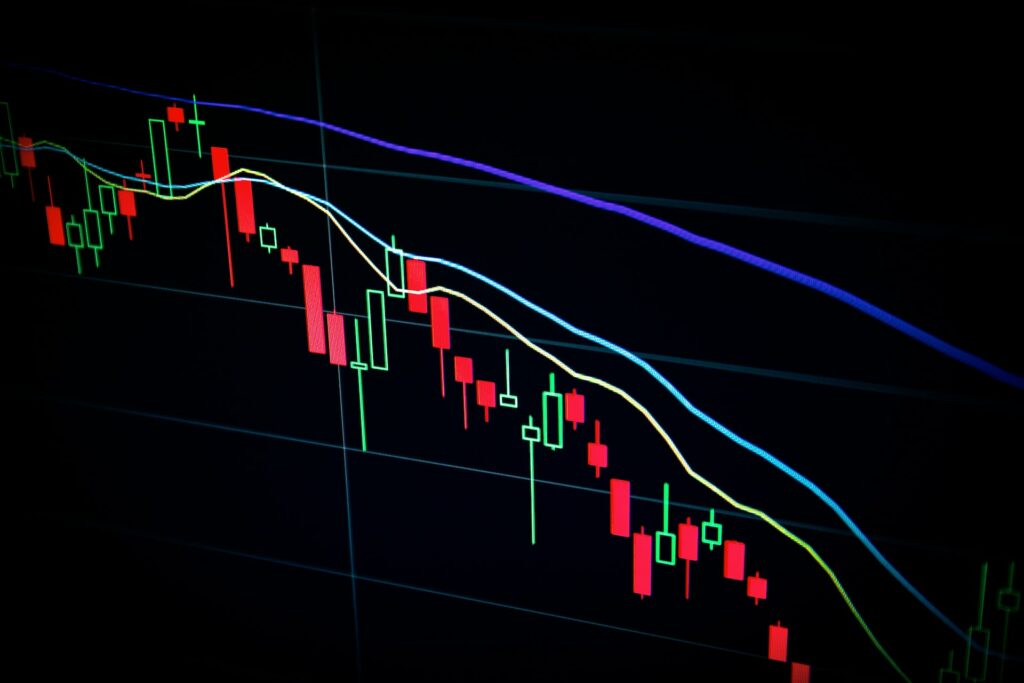It’s easy to feel enthused about investing during a bull market. The stock market and indices are performing nicely. If you are new to investing, generating rapid money may entice you to continue. You probably aren’t going to ask yourself ‘should I sell my stocks’. And if you’ve been investing for a long, you’ll be pleased to watch your portfolio’s worth rise.
Bear markets are not so simple. It might be difficult to know what to do next, no matter how long you’ve been investing or how many stocks you’ve purchased. The S&P 500 Index has lost almost 18% of its value since the beginning of the year, while the Dow Jones Industrial Average has lost roughly 8%. At the same time, the Nasdaq Composite has dropped 30%, as technology firms have been the worst impacted by the crisis this year. Investors are concerned about growing prices, supply chain issues, the Ukraine conflict, and the economy as a whole. Some of these issues are also detrimental to business.
Should I sell my stocks or hold on?
And the million-dollar question for stock market investors is whether to sell in a bear market or hold on in the hope that losses would cease.
When a company’s or stock index’s market value falls, it might be tempting to sell all of your shares and exit fast to reduce your losses. However, according to experts, selling stock is not always the best option.
Sell-offs in a bear market exacerbate the trend and drive equities farther down. During a bear market rally, investors purchase shares of stocks that are down in value because they believe the price will rise.
Nobody likes to panic and sell at the bottom because it locks in losses and makes them difficult to recover. The only prudent thing an investor can do is run their portfolio through a stress test. They need to ensure that it aligns with their investing strategy, time horizons, goal returns, and risk tolerance.
Investing in stocks during a slump or a time of negative growth can pay off in the long run, but it is a bit risky.
The downturn will not persist forever

One crucial point to remember. Today’s issues will not persist forever, and strong firms will be able to overcome them. Historically, the stock market has always been able to recover from a crash or slump. And we all know that hard economic times are always followed by good ones.
All of this means that in a bear market, the smartest thing to do is to hold shares in firms you trust. And if you have money to invest, this is a wonderful moment to add new stocks to your portfolio or purchase more shares of these long-term winners. There are several solid, lucrative businesses available for purchase at affordable costs.
“But what if share prices continue to fall in the coming weeks and months?” you may wonder. How can I know when it’s OK to do this?
It is impossible to schedule an investment such that you buy at the lowest possible price and sell at the greatest possible price. That’s great since we’re in it for the long haul. If you invest in solid firms for at least five years, you will almost certainly come out ahead in the long term. So, if you like what a firm says about itself and the pricing appears to be reasonable, you should probably buy.
Reasons to sell during a bear market
Let us now discuss how or when to sell. That is typically not a smart idea in a down market. You’ll pass up opportunities to get back on track.
There might be a few exceptions. Let’s look at some of the top reasons to sell stocks amid a downturn.
You need the money

If you need money for an unexpected expense, you can borrow it from your stock portfolio. No investor wants to sell equities that have depreciated in value, but if you aren’t prepared, you may have to. It’s probably not the most cost-effective option, but it could be the only one.
In this circumstance, you may have to sell stocks at a loss, so consider what you can do to prevent this from occurring again. First, because we don’t know how long this bear market will persist or when the next one will occur, all investors must maintain a completely liquid cash emergency fund.
Next, ensure that your portfolio is well-diversified. If your portfolio is only comprised of equities, it might be quite volatile, forcing you to sell at inopportune periods. Consider investing in many asset classes and marketplaces throughout the world so that you are not overly reliant on any one factor.
You want to reduce your tax burden

People who have a large number of concentrated stock investments are generally hesitant to sell their shares for fear of incurring large capital gains taxes. During a down market, you can sell your investments for less than you earned, lowering your tax burden.
You want to switch to index funds

When it comes to investment management, it is critical to maintain a diverse portfolio. Single-stock investments carry “company-specific” or “idiosyncratic” risk, which can increase the volatility of a portfolio. Investments that are more volatile tend to have poorer long-term returns.
If you want to learn more about index funds, downturn markets are a good opportunity to exit current positions and a good time to enter if you intend to invest long term. Over time, downturn markets have shown to be excellent periods to shift your position. At the correct time, you can exit dangerous positions and enter better ones.
Long-term, it might make a lot of sense to sell individual equities when the tax loss is minor and invest in well-diversified, low-cost index funds. With this strategy, you may leave your former position gently and start over with a more balanced attitude.
Bottom line
Of course, being able to purchase at the bottom and sell at the top with pinpoint precision would be ideal. We can’t do it, so we must make the best of what we have and find out how to proceed with the variables we have. Bear markets may bring opportunities, therefore it’s essential to learn how to capitalize on them and manage your portfolio properly.
Right now, your selections are also influenced by how long you want to invest for and how much risk you are prepared to face. If you want to remain investing for a long time, you may want to maintain certain risky stocks. You might do this even if you’ve previously made money from them. If your investment time horizon is limited or you want to be extra cautious, you may wish to sell and lock in profits.
In this difficult market, buying and holding is typically the best strategy. They may not instantly benefit your portfolio. However, adopting these decisions during a weak market may help your portfolio soar in the long run.



